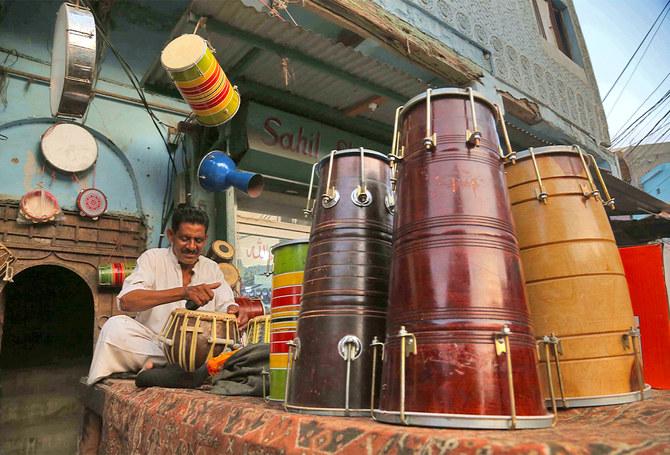KARACHI: Surrounded by pieces of sandpaper, rolled cardboard stands and hand drums, Tanveer Hussain sits in a small store in a defunct red-light district of Pakistan’s southern port city of Karachi.
Napier Road, which once nurtured dance and music, wears a deserted look, though Hussain’s business has survived due to the devotees of various faiths.
As he sandpapers the top of a hand drum called tabla, which is used in the subcontinental classical music, Hussain points at buildings across the road while recalling times when they attracted dance enthusiasts.
The dwellers of Napier Road were forced to migrate to other parts of the city after Pakistan’s former military ruler General Ziaul Haq declared wine, prostitution and dance illegal in the 1980s.
In the following decades, escalating gang violence in the city put an end to whatever entertainment activity was left in the neighborhood.
Hussain’s business managed to survive since he found new customers among the devotees of various faiths who started buying tablas to perform religious rituals.
“If our business still runs and helps us earn a little for food, it is because of people associated with different religions,” Hussain’s son, Saddam, told Arab News.
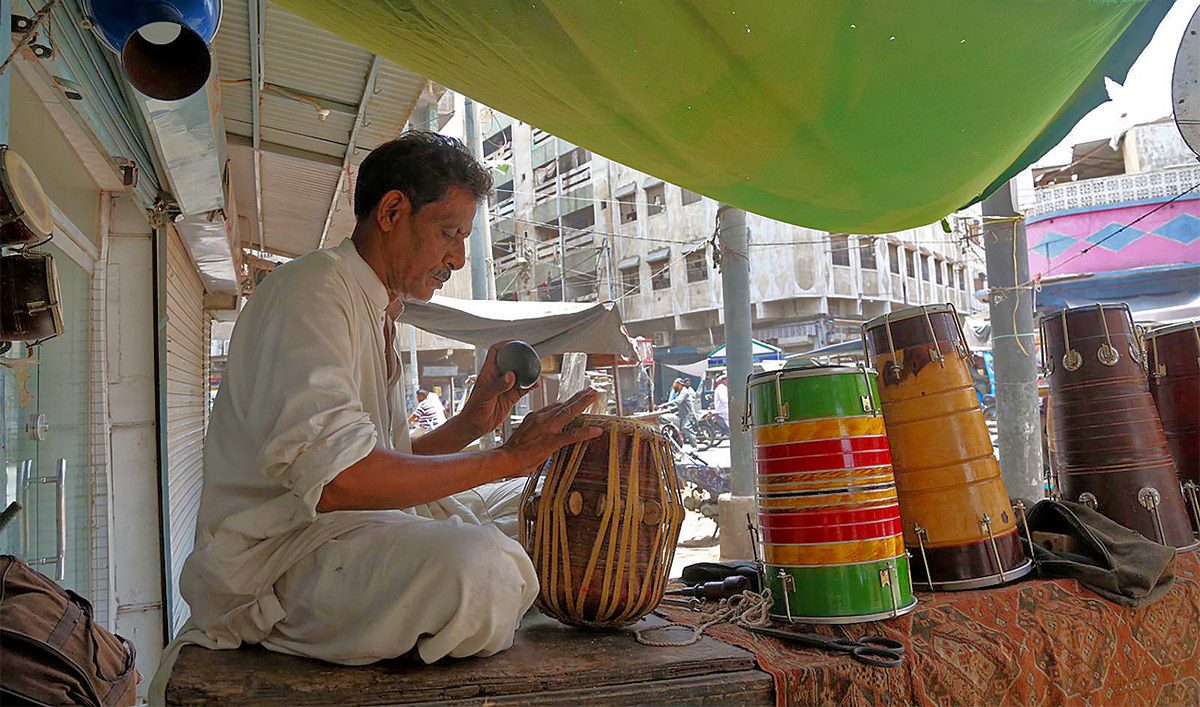
Tanveer Hussain is busy making a tabla at his shop in Karachi, Pakistan, on May 7, 2022. (AN Photo/S.A.Babar)
Proponents of Islamic Sufism in the Subcontinent sing qawwalis, a musical performance of poetry that aims to lead listeners to a state of religious ecstasy, which requires tabla beat. Similarly, Sikhs, Hindus, and Christians also purchase the musical instrument from Hussain for religious rituals.
One of his clients, Sardar Gurmeet Singh, told Arab News he buys tablas to recite kirtan, a Sikh hymn, in gurdwaras.
Tapping his new musical instrument, Singh said the handmade drums by Hussain and his son had no competition.
“This is the best place to find tabla,” he said. “This is why I have purchased a new one and brought the old ones for repair. This, along with harmonium, is mandatory for reciting kirtan.”
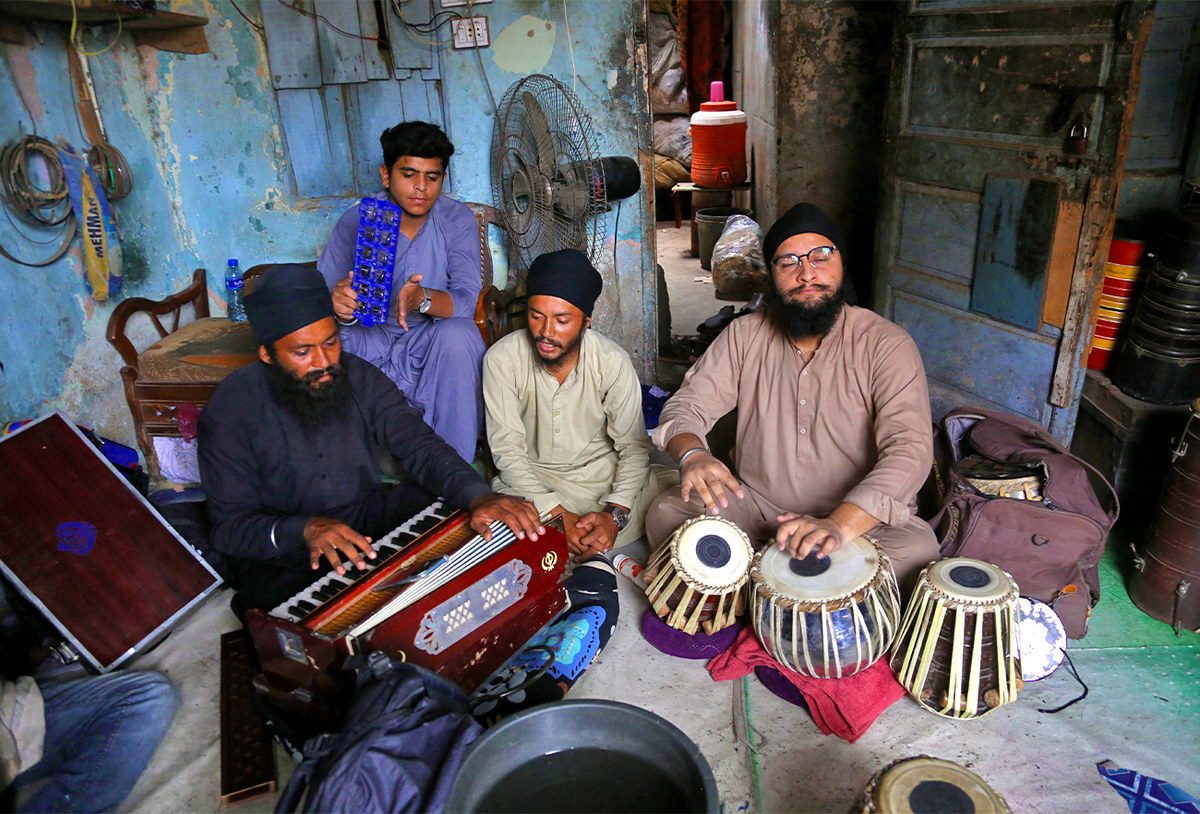
Sardar Gurmeet Singh (right) beats a pair of tabla to check its quality as his friends Sardar Mool Singh and Sardar Ramesh Singh recite kirtan at a store located on Napier Road in Karachi, Pakistan, on May 7, 2022. (AN Photo/S.A.Babar)
Today, most of the buildings on Napier Road look dilapidated.
“These [buildings] … were once home to women dancers,” Hussain told Arab News.
He recalled that his store was once among 18 tabla shops in the neighborhood. Back in the day, workers remained busy round the clock to meet customer demand for valuable percussion instruments. Now only three shops remain in the area, he said.
“Our business is going extinct and may not survive for more than five to six years,” he added.
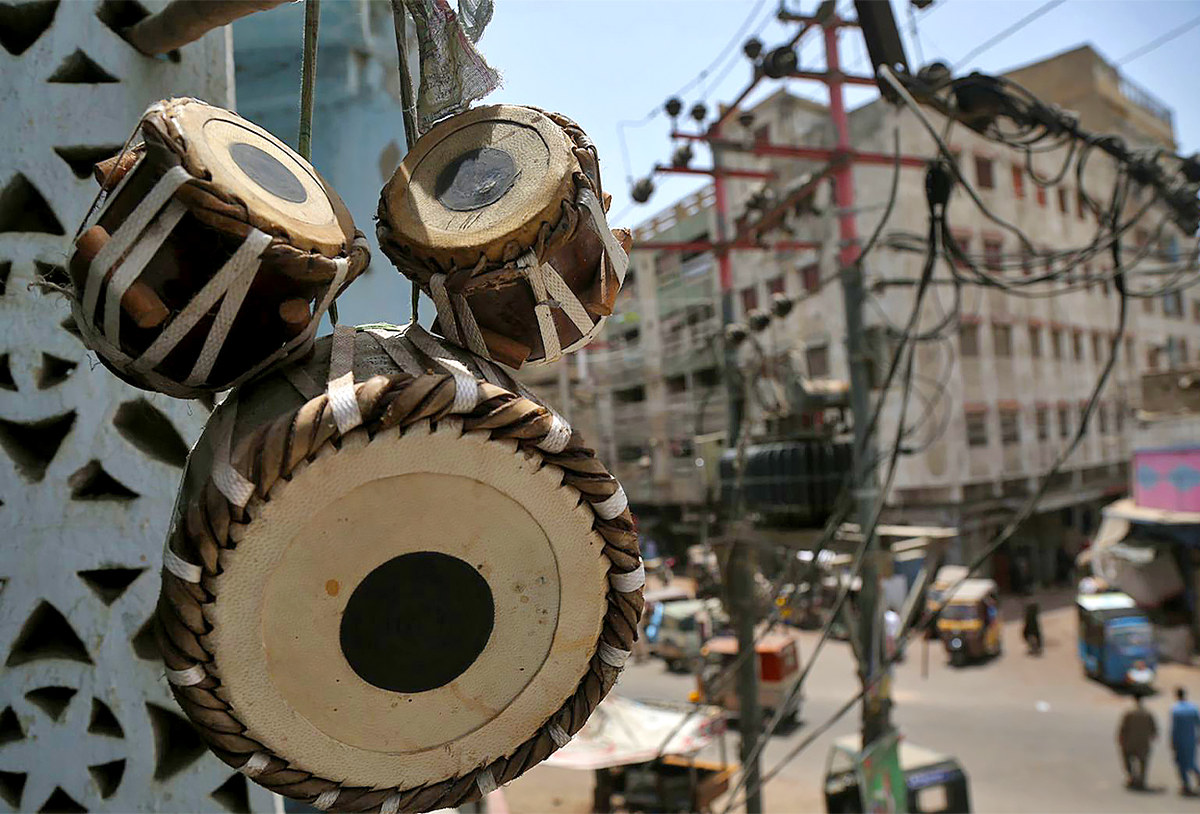
Tablas hang outside a store on Napier Road in Karachi, Pakistan, on May 7, 2022. (AN Photo/S.A.Babar)
Rubina Chaudhry, who is in her 60s, briefly worked as a teenaged dancer in the area just a few years before the ban imposed in the 1980s.
She said there was hardly a building in the neighborhood that did not have mujra, a traditional Mughal-era dance form in which a woman moves as her male colleagues play tabla and harmonium.
“There are over one hundred apartments in these buildings and each one of them used to have guests from across the city,” Chaudhry told Arab News. “It was also a cultural center, which it is no more.”

Workers are busy making tablas at a workshop in Karachi, Pakistan, on May 7, 2022. (AN Photo/S.A.Babar)
Saddam said mujra continued in the area until 2002 despite the new rules introduced by Haq’s regime.
“Our work as tabla-makers still continues, though it is not the same as it used to be in the past,” he said. “We came to the workshop at 9am and went home after midnight since we still had customers.”
The period was then followed by worsening security situation due to violence involving gangs based in nearby neighborhoods of Lyari and Shershah. They extorted money and harassed dancers, forcing them to leave Napier Road.
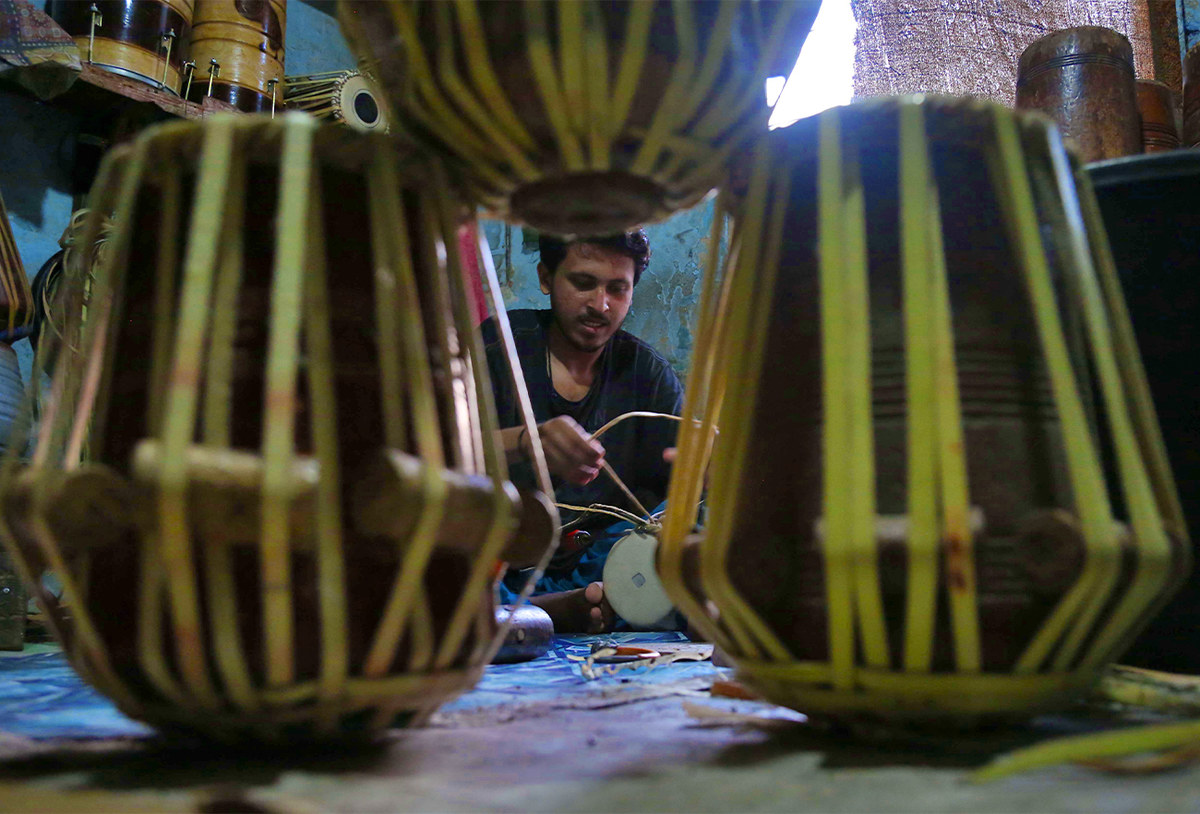
A worker is busy making tablas at a workshop in Karachi, Pakistan, on May 7, 2022. (AN Photo/S.A.Babar)
“Gangsters put the last nail in the coffin of this place and completely shut down whatever activity was left,” Saddam said while recalling how he tried to make time to watch dance performances after work.
Today, Hussain and his son depend on religious devotees to help keep their craft alive for a few more years. “If people of these faiths were not there, our work would have ended long ago,” he said.
Saddam maintained the art of tabla-making would go extinct if it were not institutionalized.
“If this situation persists, our children may not continue this profession for meager earning and we may soon lose our ancestral skill,” he added.


